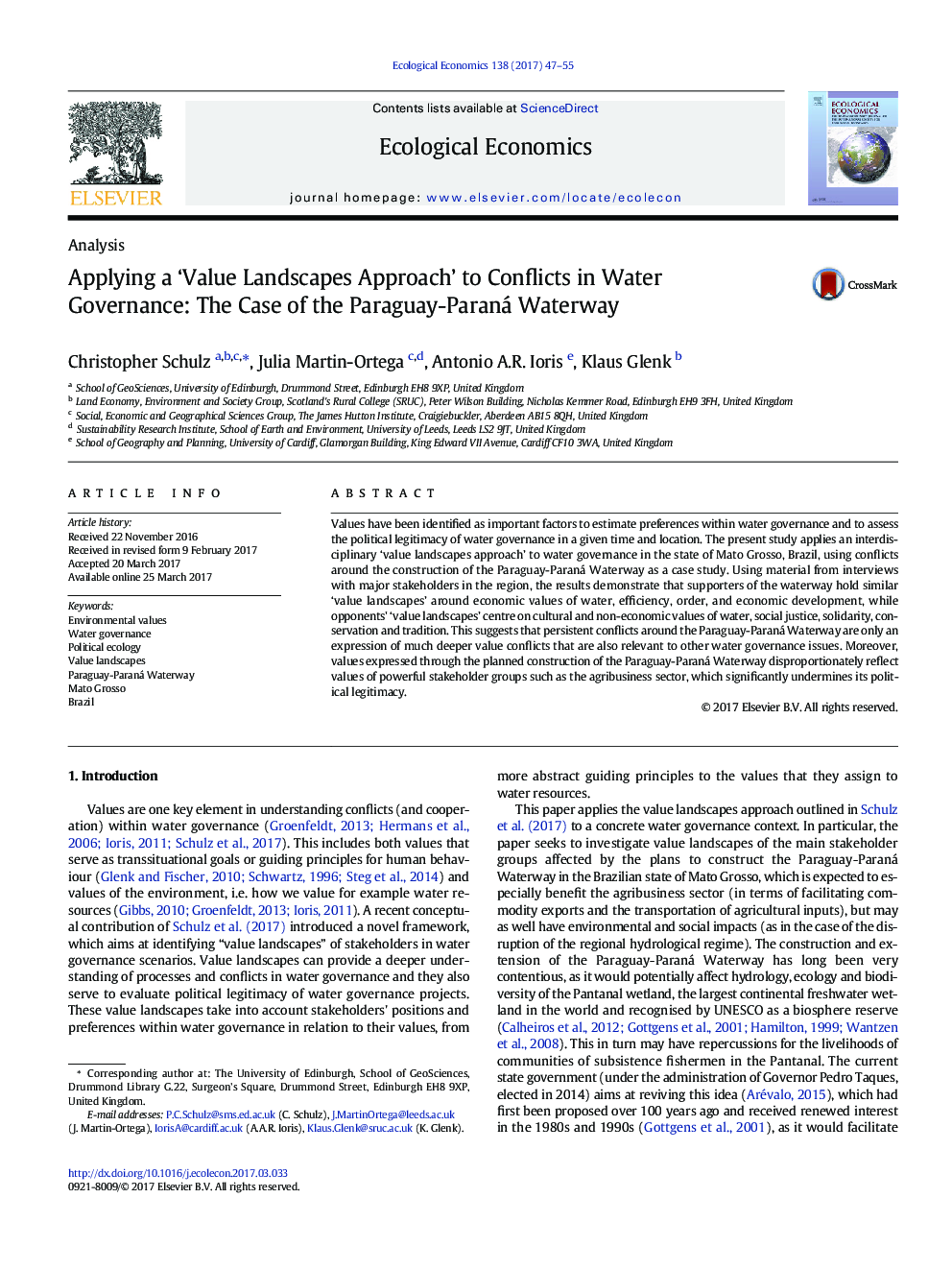| Article ID | Journal | Published Year | Pages | File Type |
|---|---|---|---|---|
| 5048743 | Ecological Economics | 2017 | 9 Pages |
â¢We present a first application of the recently proposed 'value landscapes approach'.â¢We identify value landscapes of opponents and supporters of a Mato Grosso waterway.â¢Supporters often cite economic values, efficiency, order and economic development.â¢Opponents cite non-economic values, social justice, conservation, and traditions.â¢Identifying value landscapes can thus help to find the root cause of conflicts.
Values have been identified as important factors to estimate preferences within water governance and to assess the political legitimacy of water governance in a given time and location. The present study applies an interdisciplinary 'value landscapes approach' to water governance in the state of Mato Grosso, Brazil, using conflicts around the construction of the Paraguay-Paraná Waterway as a case study. Using material from interviews with major stakeholders in the region, the results demonstrate that supporters of the waterway hold similar 'value landscapes' around economic values of water, efficiency, order, and economic development, while opponents' 'value landscapes' centre on cultural and non-economic values of water, social justice, solidarity, conservation and tradition. This suggests that persistent conflicts around the Paraguay-Paraná Waterway are only an expression of much deeper value conflicts that are also relevant to other water governance issues. Moreover, values expressed through the planned construction of the Paraguay-Paraná Waterway disproportionately reflect values of powerful stakeholder groups such as the agribusiness sector, which significantly undermines its political legitimacy.
